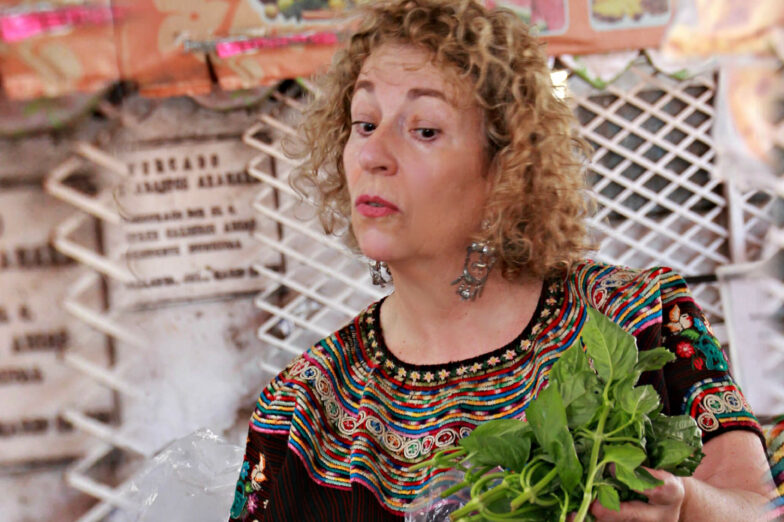Sugar addiction is a widespread problem in modern societies – but it’s even more common in people with complex trauma.
One study of almost 50,000 female nurses showed that the nurses with PTSD symptoms were 3 times as likely to have a food or sugar addiction as the ones without any symptoms.
Not only does sugar addiction put people at risk for diabetes, it actually exacerbates PTSD and other mental health conditions, including depression.
If you’re looking for ways to respond to – and (finally) resolve – your trauma, it’s crucial to break free of sugar addiction.
How trauma can lead to sugar addiction as a coping mechanism
When someone goes through a traumatic experience, it typically leads to states of dysregulation. A traumatized person may be unable to manage their powerful emotions, or they may experience uncontrollable, negative thoughts.
But it’s not only the emotions and mind that become unbalanced in the wake of trauma. Body processes become dysregulated too.
One biological marker of dysregulation from trauma is a decrease in cortisol, the stress hormone that typically gives us the energy to “get up and go” in the morning.
And without enough cortisol, it’s common to experience cravings for sugar or refined carbohydrates – quick sources of calories that seem, at first glance, to close the gap in our energy level.
Understanding Sugar Addiction and Trauma Recovery
The problem is that refined sugar is a pro-inflammatory food product. It contributes to and worsens inflammation, pain, and depression. As we work to resolve trauma, the often forgotten or missing piece is how eating sugar plays a role in depression, mood, and pain.
In response to complex trauma, cortisol is often low and cannot raise our blood sugar levels like it usually would.
Over time, after we get caught in the pattern of eating lots of sugar and refined carbs this results in labile blood sugar and symptoms of irritability, shakiness or feeling like rubber, or dizziness. This is called reactive hypoglycemia, and it underlies the ups and downs we call mood lability — when in fact, it may be blood sugar imbalance.
Our sugar intake also leads to inflammation in the body. We may or may not feel this low-burning fire. If we have pain, we have inflammation, but we can have inflammation and not yet feel it as pain.
Inflammation, in turn, disrupts cytokines and immune function and depletes serotonin and other neurotransmitters. Thus, the cycle of mood, depression, and pain continues.
If you’ve recognized by now that sugar addiction plays a role in your mental health–whether it’s mood swings, depression, PTSD symptoms, or something else, please keep in mind that giving up refined sugar does not mean you cannot enjoy the sweetness of life and foods; read on to learn why and how to give up sugar.
Why Not Sugar?
Sugar that has been refined from sugar cane and sugar beets depletes B vitamins and immune support minerals, such as zinc. Our B vitamins aid neurological function and keep us calm. By depleting these stores, refined sugar contributes to depression.
In the US, so many people eat refined sugar, this may account for the high levels of depression, pain, and opiate addiction. Sugar exacerbates pain and raises triglycerides and cholesterol levels. It overwhelms the body by robbing it of nutrients.
There are several good alternatives to sugar and sweeteners that do not have the side effects of artificial sweeteners like aspartame, which individuals with mood disorders are susceptible to, as it makes depression worse by disrupting brain function.
The 7 signs of sugar addiction
So how do you know if you’re addicted to sugar?
If you have a sugar addiction you may find yourself suffering from one or more of these 7 symptoms:
- Craving sweet things even when you’re not hungry
- Nibbling on sweet treats to soothe yourself whenever you’re upset
- Needing to eat frequently, sooner than every 3 or 4 hours
- Eating sugar compulsively even though you know it’s not good for you
- Experiencing major fluctuations in your energy throughout the day
- Feeling irritable, shaky, or dizzy between meals
- Becoming extremely fatigued after eating
Sugar Addiction Recovery/Prevention
Getting off the roller coaster of sugar addiction is not only possible, it’s an important step in your recovery from almost any co-occurring mental health condition!
Here is what I counsel all my clients:
- Go on a protein-rich diet for 7–10 days, which can help support your body as you go through withdrawal from sugar and refined carbohydrates.
- Eat small amounts (2–4 ounces) of protein
- Eat six times a day (about every 3–4 hours)
- And add one to two servings of a root vegetable, such as a sweet potato or carrots topped with butter, coconut oil, or olive oil, along with raw salads or cooked green vegetables.
There is no need to be hungry, so eat as often as you need. Following this change in diet, most people will lose their craving for refined carbohydrates and sugars.
Then, add small amounts of additional carbohydrates like fruit and grains to the diet each day.
Stevia As A Sugar Substitute
Stevia is the ideal sugar substitute. It is a hundred times sweeter than sugar, reducing blood sugar. While the powdered form of stevia can tend to leave a bitter aftertaste, the liquid form does not. Use it in drinks or food preparation.
Xylitol is another sweetener without side effects. It was first extracted from birch trees and provides a healthy sweet taste that does not raise blood glucose levels or negatively affect dental health.
But many people experience a reaction to it, including gas and digestive upset, and take note! It is deadly for dogs.
Stevia/Sugar Conversion Table
| Sugar Amount | Equivalent Stevia Powdered Extract | Equivalent Stevia Liquid Concentrate |
|---|---|---|
| 1 cup | 1 teaspoon | 1 teaspoon (24-36 drops) |
| 1 tablespoon | ¼ teaspoon | 6-9 drops |
| 1 teaspoon | A pinch to 1/16 teaspoon | 2-4 drops |
Other Healthy Sugar Alternatives
Just because you are giving up refined sugar, it does not mean you need to give up all sweet foods.
In fact, I highly recommend substituting healthy alternatives to sugar into your diet. That way, you’ll be much less likely to backslide or give in to temptation over time.
Here are some of the most popular of all the tried-and-true sugar alternatives that I recommend my clients add to their diets:
- Smoothies sweetened with stevia are an alternative to sugary treats.
- Unsweetened cocoa powder with stevia/homemade stevia-sweetened chocolate candy are alternatives to chocolate with sugar.
- Honey or maple syrup are alternatives to cane sugar.
- Hot cocoa sweetened with stevia, and real whipped cream is an alternative to chocolate bars with sugar.
- Raw fruit is an alternative to fruit cocktails.
- Green juice is an alternative to fruit juice.
- Mineral water flavored with frozen fruit and stevia is an alternative to soda.
- Herbal tea over ice is an alternative to premade iced tea.
- Plantains make an excellent addition to the starchy carbohydrate repertoire when eliminating sugar or wheat from the diet.
By trying some of these healthy sugar alternatives out, you’ll be able to enjoy your diet over the long run as you heal and recover from trauma, without feeling deprived.
Case Study: John’s Story
John was 38, divorced, and complained of fatigue and moodiness. He’d been diagnosed with ADHD and bipolar disorder. He ate lots of processed food and his blood glucose was high.
He was always hungry and didn’t feel satisfied, no matter what he ate.
Together we reviewed John’s dietary habits, listing foods he liked and disliked. I took a comprehensive medication and symptom history.
Chronic stress had depleted his energy and affected his glucose metabolism. His diet had also deteriorated since his divorce.
I asked him to keep a food-mood diary, which illuminated the relationship between the two. We identified 3 positive changes he could make, and 3 foods he would relinquish, like donuts.
I proposed a 4-week diet plan, including supplements: glucose tolerance factor; a B-complex; fish oil, which would help his cholesterol and ability to focus; and taurine and magnesium to lower tension and support sleep.
After one week, John noticed he had more energy and was more satisfied with his diet.
After two weeks, he felt more in control of his choices.
By the end of the month, he had eliminated sugar and felt more emotionally stable.
After 3 months he’d dropped 10 pounds, was feeling and sleeping better, had begun dating, and was ready to start reducing his psychiatric medications.
John is just one of hundreds of clients whom I’ve helped in their recovery from sugar addiction as a step toward improving their mental health.
It’s my hope that this article has given you a starting point for your own journey of recovery.
Continue learning about sugar, how it affects our health, and how to successfully beat sugar addiction in my newest online course: Integrative Medicine and Nutrition for PTSD, Complex Trauma, and Traumatic Brain Injury.
- Touch Therapy for Trauma Recovery - April 19, 2024
- The Soul of Basil - March 12, 2024
- A Comprehensive Guide to Natural Hypothyroidism Treatment - November 17, 2023

Are You Ready to Advance Your Career?
If you want to advance your career in integrative medicine, explore my courses and certifications.












